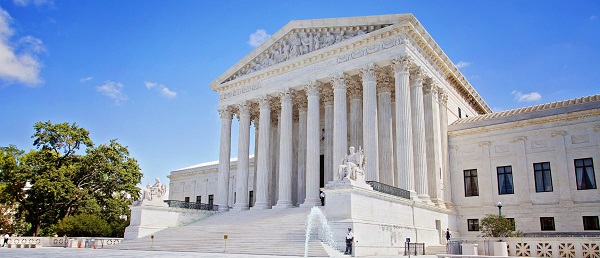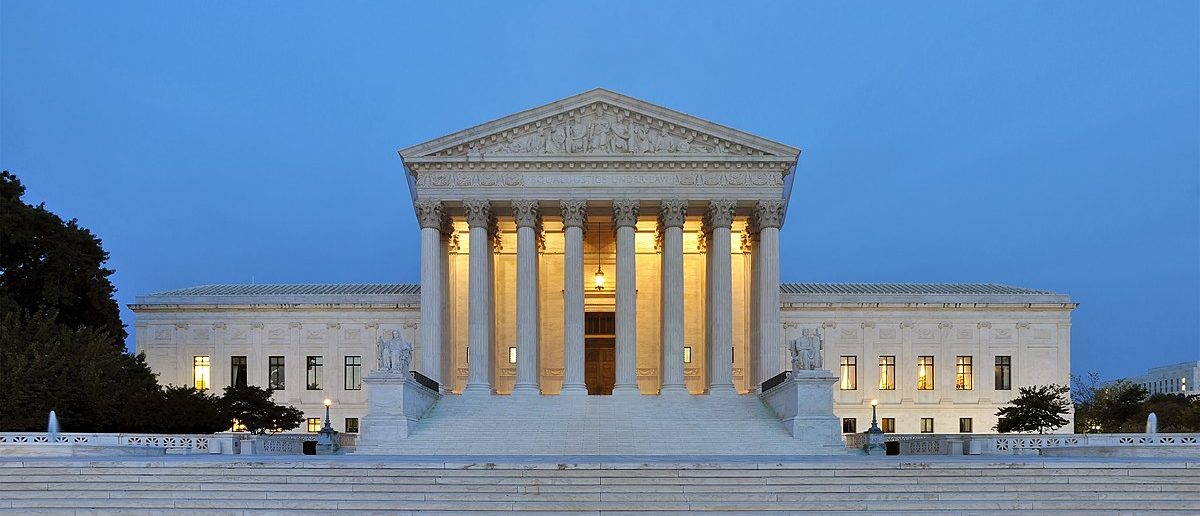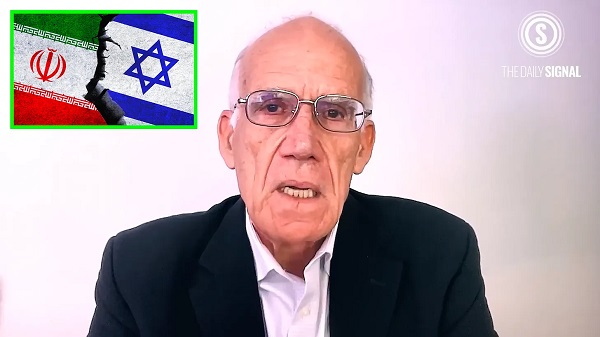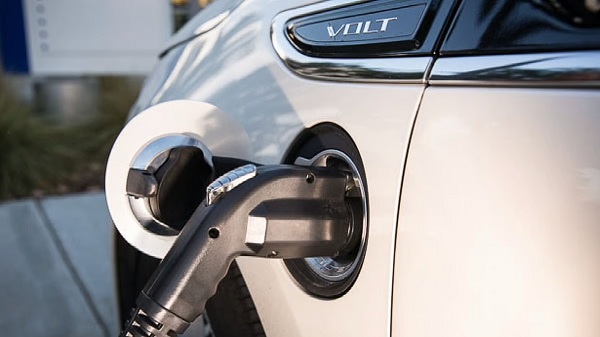Daily Caller
Misguided Climate Policies Create ‘Real Energy Emergency’ And Permit China To Dominate US


From the Daily Caller News Foundation
By Mariane Angela
Interior Secretary Doug Burgum warned on Fox Business Tuesday about America’s deepening energy shortfall and said that misguided climate policies could give China the upper hand in both the global energy race and artificial intelligence development.
House lawmakers voted 246-164, with support from 35 Democrats, to overturn a Biden-era EPA rule that lets California enforce a de facto national ban on gas-powered cars by 2035. During an appearance on “Kudlow,” Burgum said that U.S. energy shortfalls could allow China to outpace America in artificial intelligence and other power-hungry technologies.
“The real energy emergency that we have right now is that we don’t have enough energy in this country. We’re losing the AI arms race to China, and we’ve got to have more energy and more power right now in the country. And so that’s one of the things that we’re focused on right now,” Burgum told host Larry Kudlow.
Burgum blasted California’s aggressive emissions standards, which he said have effectively become national policy.
WATCH:
“Let’s start with California, Larry. That would be a great idea, because there’s 14 other states that followed California. So basically we’re stuck right now. Automakers feel like they’ve got to build two kinds of cars in America, one for California standards and one for the rest of the country,” Burgum said. “Of course, we know that the California standards are based on a bunch of falsehoods around emissions, because if we want zero carbon fuels, it’s much cheaper.”
Burgum took particular aim at electric vehicle subsidies, calling them a boondoggle built on climate ideology. He also called electric vehicle subsidies economically reckless since the cost of avoiding a single ton of carbon dioxide exceeds $900.
“It’s 10 to 15 times cheaper to have zero carbon liquid fuels than it is to subsidize EVs. The EV subsidies, where the real bank was, the thing that was really breaking the bank, over $900 for an avoided tonus of CO2, and all of that built around climate ideology,” Burgum said.
Republican Pennsylvania Rep. John Joyce introduced a resolution under the Congressional Review Act to stop California’s zero-emission vehicle mandate, which several other states have adopted. If the Senate doesn’t act, the Environmental Protection Agency would face a lengthy rulemaking process to reverse the policy that will allow California’s stricter standards to remain in effect for years.
The states that have opted in to California’s auto rules include Colorado, Delaware, Maryland, Massachusetts, New Jersey, New Mexico, New York, Oregon, Rhode Island, Vermont, Washington, and the District of Columbia.
Automotive
Supreme Court Delivers Blow To California EV Mandates


From the Daily Caller News Foundation
“The Supreme Court put to rest any question about whether fuel manufacturers have a right to challenge unlawful electric vehicle mandates”
The Supreme Court sided Friday with oil companies seeking to challenge California’s electric vehicle regulations.
In a 7-2 ruling, the court allowed energy producers to continue their lawsuit challenging the Environmental Protection Agency’s decision to approve California regulations that require manufacturing more electric vehicles.
“The government generally may not target a business or industry through stringent and allegedly unlawful regulation, and then evade the resulting lawsuits by claiming that the targets of its regulation should be locked out of court as unaffected bystanders,” Justice Brett Kavanaugh wrote in the majority opinion. “In light of this Court’s precedents and the evidence before the Court of Appeals, the fuel producers established Article III standing to challenge EPA’s approval of the California regulations.”
Kavanaugh noted that “EPA has repeatedly altered its legal position on whether the Clean Air Act authorizes California regulations targeting greenhouse-gas emissions from new motor vehicles” between Presidential administrations.
“This case involves California’s 2012 request for EPA approval of new California regulations,” he wrote. “As relevant here, those regulations generally require automakers (i) to limit average greenhouse-gas emissions across their fleets of new motor vehicles sold in the State and (ii) to manufacture a certain percentage of electric vehicles as part of their vehicle fleets.”
The D.C. Circuit Court of Appeals previously rejected the challenge, finding the producers lacked standing to sue.
“The Supreme Court put to rest any question about whether fuel manufacturers have a right to challenge unlawful electric vehicle mandates,” American Fuel & Petrochemical Manufacturers (AFPM) President and CEO Chet Thompson said in a statement.
“California’s EV mandates are unlawful and bad for our country,” he said. “Congress did not give California special authority to regulate greenhouse gases, mandate electric vehicles or ban new gas car sales—all of which the state has attempted to do through its intentional misreading of statute.”
Daily Caller
Unanimous Supreme Court Ruling Inspires Hope For Future Energy Project Permitting


From the Daily Caller News Foundation
It comes as a surprise to many Americans when they learn that the vast majority of decisions issued by the U.S. Supreme Court are decided unanimously. Far too often, these unanimous decisions receive scant attention in the press due to their lack of controversy.
Such is the case with a key 8-0 decision the Court published May 29 that could help Congress and the Trump administration meet their goals to streamline permitting for energy projects in the United States. The decision narrows the scope of application of the National Environmental Policy Act (NEPA), a law whose environmental review provisions have been systematically used – and often abused – by climate alarm groups and plaintiff lawyers for decades to impede the progress of major projects of all kinds.
The case at hand involves the Uinta Basin Railway Project, which will transport oil produced in Utah’s Unita Basin and connect it to the national railway network so it can reach national markets. Because the rail line would parallel the Colorado River for roughly 100 miles, the D.C. Court of Appeals ruled in 2023 that the project’s developers would have to conduct a second, expanded environmental impact study under NEPA to try to assess nebulous potential impacts to air quality – often taking place thousands of miles away – or from a possible oil spill, rescinding a key permit that had been issued in 2021 by federal regulators.
Dear Readers:
As a nonprofit, we are dependent on the generosity of our readers.
Please consider making a small donation of any amount here.
Thank you!
It is key to note that that permit was issued by the federal Surface Transportation Board (STB) along with a 3,600-page environmental impact statement to comply with NEPA. In the conduct of the environmental review, the Wall Street Journal wrote that STB and the company assessed “the railway’s potential effects on local water resources, air quality, protected species, recreation, local economies, the Ute Indian tribe and much more.”
But for the plaintiffs and the D.C. Circuit Court, 3,600 pages of thorough scientific analysis just weren’t enough. They filed suit, complaining that the study didn’t try to assess potential impacts that might happen on dozens of other rail lines hundreds of miles distant, or, even more absurd, assess potential pollution in “environmental justice communities” as far away as the Texas and Louisiana Gulf Coast.
You really can’t make this stuff up.
If delay was the goal, the plaintiffs got a win, halting progress for four years. That is a sadly typical outcome for cases involving energy-related projects such as this one.
In their unanimous opinion written by Justice Brett Kavanaugh, the justices state, “The goal of the law is to inform agency decisionmaking, not to paralyze it.”
As I’ve written in previous stories, the vast majority of delays in permitting processes stem from provisions contained in major federal statutes designed to protect the environment and endangered species. In addition to NEPA, these laws include the Clean Air Act, the Clean Water Act and the Endangered Species Act. Among them all, none has been more broadly abused and misinterpreted by activist courts than NEPA.
In its analysis of the decision, the Institute for Energy Research says, in part, that the “decision means that agencies can approve projects like pipelines, railways, and dams and not be mandated to consider distant environmental effects of the projects, such as increased greenhouse gas emissions, that had stopped or delayed fossil fuel projects from moving forward, particularly during the Biden administration.” But, the author cautions, “the Uinta Basin Railway project could still face additional legal and regulatory hurdles within Colorado,” despite the ruling.
The good news is that even the liberal justices on the Supreme Court appear to be developing a growing awareness of just how absurd some of the claims made in lawsuits like this case really are. The unanimous nature of this decision inspires some sense of hope that the Trump administration can succeed in some of its efforts to reform the system and put an end to some of the most unjustified delays.
David Blackmon is an energy writer and consultant based in Texas. He spent 40 years in the oil and gas business, where he specialized in public policy and communications.
-

 Business16 hours ago
Business16 hours agoOttawa Slams Eby Government Over Chinese Shipyard Deal, Citing Security and Sovereignty Risks
-

 conflict2 days ago
conflict2 days agoVictor Davis Hanson Makes a Disturbing Prediction About What Happens If Iran Survives
-

 Banks1 day ago
Banks1 day agoTop Canadian bank studies possible use of digital dollar for ‘basic’ online payments
-

 Automotive17 hours ago
Automotive17 hours agoCarney’s exercise in stupidity
-

 Automotive2 days ago
Automotive2 days agoSupreme Court Delivers Blow To California EV Mandates
-

 Alberta2 days ago
Alberta2 days agoAlberta Trailblazing On Property Rights Protections
-

 International2 days ago
International2 days agoTaiwan Criticizes CBC Correction on United Front Buddhist Land Story, Citing PRC Political Pressure
-

 Alberta2 days ago
Alberta2 days agoSecond body recovered from Bow Glacier Falls rockslide. Police identify first victim


